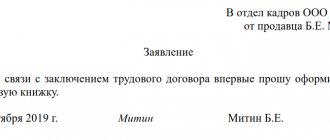MIP online legal encyclopedia - » Useful articles and extracts on arbitration » General provisions » Jurisdiction at the choice of the plaintiff
Get an expert opinion on the choice of plaintiff in two clicks
Alternative jurisdiction is a type of jurisdiction according to which the choice of a territorial court to consider a dispute, if there are grounds for doing so, remains at the discretion of the plaintiff party.
The Arbitration Procedure Code of the Russian Federation provides for this type of jurisdiction of the case as alternative jurisdiction, that is, at the choice of the plaintiff. The legislation establishes the possibility for the plaintiff party to choose a specific territorial court that will consider and resolve the dispute.
Alternative type of arbitration jurisdiction for a dispute
Alternative jurisdiction is a type of jurisdiction according to which the choice of a territorial court to consider a dispute, if there are grounds for doing so, remains at the discretion of the plaintiff party.
The plaintiff has a choice of where exactly to submit his application for consideration, while the selected arbitration court, if there are grounds, does not have the right to refuse to accept and consider the application.
It is noteworthy that if during the trial new circumstances are discovered that no longer give the dispute signs of alternative jurisdiction, the court has the right to refer the case to an authorized arbitration court. The latter does not have the right to refuse to accept the case: this procedure is not provided for by current Russian legislation. When determining the jurisdiction of a dispute, the rules of arbitration procedural law stipulate that all territorial arbitration courts of first instance have equal rights and responsibilities. Moreover, the decisions made by these courts have equal legal force, can be challenged in higher courts, and in the absence of a challenge - immediate or within a specified period of execution by the party that lost the dispute during court hearings.
Jurisdiction of claims in labor disputes
There are general provisions on jurisdiction that apply to most cases heard in courts of general jurisdiction. They, as a rule, consist in the fact that documents on claims (complaints, statements) can be filed:
- at the location of the defendant or its branch;
- magistrate or city (district) court.
These rules are universal , although there are a number of exceptions. For example, Article 30 of the Code of Civil Procedure establishes special provisions on exclusive jurisdiction, and these may not coincide with the general standard rules for bringing a claim. However, disputes arising from legal relations related to labor activities do not fall into this category of proceedings.
Alternative jurisdiction rules
In order for a case to be subject to alternative jurisdiction, it must fall under one of the current rules of arbitration procedural law.
The general type of jurisdiction establishes that arbitration disputes are filed at the actual or official location of the defendant party.
An alternative type of jurisdiction establishes that a dispute can be filed in any territorial court, at the choice of the plaintiff party, if:
- the location of the respondent party remains unknown at the time of filing the application;
- the application is drawn up for a branch or representative office of an organization that is located outside the territory of the main (main) office of the organization;
- there is an agreement that specifies a specific place where the obligations of the parties must be fulfilled;
- the application is drawn up for several defendants, whose locations do not coincide in territorial affiliation;
- the respondent party is a representative (individual or legal entity) of a foreign state that has property on the territory of the Russian Federation;
- The subject of the dispute is compensation for losses incurred during a collision of sea vessels, as well as compensation for rescue operations at sea.
Jurisdiction at the choice of the plaintiff means filing an application with the territorial arbitration court that the plaintiff considers convenient for considering and resolving the dispute. Thus, if it is unknown where exactly the defendant party is located at the time of filing the application, the plaintiff party has the right to file an application either at the location of the property of the defendant party, or at the last known place of residence. In this case, the arbitration court does not have the right to refuse to accept the application if it is drawn up in accordance with all the rules and a paid receipt of the state fee is present. If a claim is filed against a branch of a company, the plaintiff has the right to choose a territorial arbitration court either at the location of this branch or at the location of the main head office. In this case, the application is submitted to only one arbitration court. If the plaintiff party filed a claim in two territorial courts at once, then the one that accepted the application first will consider it. In this case, the plaintiff party loses its right to choose between two courts, since the dispute is already within the resolution and competence of one of the arbitration courts. If the application indicates that it was filed in connection with violations under an existing agreement on interaction and cooperation of the parties, which states in what specific place this agreement must be executed, then the application can be filed either with the territorial court at the location of the defendant party, and to the territorial court at the place where the obligations under the contract were to be fulfilled.
An application is submitted for consideration to one of the listed courts, at the discretion of the plaintiff party, which has the right to choose jurisdiction.
The plaintiff party has the right to choose any territorial court if it makes a claim against several defendant parties at once. In this case, the application is also submitted to one selected court. This rule applies not only to the defendant parties of the Russian Federation, but also to those that are geographically located within the countries of the former USSR. Thus, if a citizen files a claim against several companies, each of which has its own legal address, and these addresses do not coincide geographically, the citizen has the right to choose which address to send the application to. The selected arbitration court considers the case, involving all interested parties in the legal process, regardless of their location. A claim brought against a foreign company or citizen can be sent for consideration both at the location of the defendant party (to a foreign arbitration court, which complicates the consideration of the case), and at the location of the property of the defendant party in the territory of the Russian Federation. If a foreign company or citizen does not have property on the territory of the Russian Federation, then alternative jurisdiction cannot be used. Consideration and resolution of a dispute in the territorial arbitration court of the Russian Federation significantly simplifies the participation of the plaintiff party in legal proceedings. In the event of a collision between two or more sea vessels, the injured party has the right to file a claim for damages, both at the location of the company that owns the guilty vessel, and at the place of its registration. The plaintiff party independently chooses where it is more convenient to send the dispute for resolution.
Commentary on Article 29 of the Code of Civil Procedure of the Russian Federation
1. The commented article indicates cases when the plaintiff can choose, at his discretion, the court to which he would like to apply for protection of his rights, i.e. bring a claim in a court of your choice. Thus, the commented article deals with alternative territorial jurisdiction. At the same time, Part 10 of the commented article specifically stipulates that only the plaintiff has the right to choose a court in cases regulated by the commented article.
Part 1 of the commented article provides for the case when the place of residence of an individual is unknown or this person does not have a place of residence in the territory of the Russian Federation (for example, lives abroad) at the time of filing the claim. In this case, the plaintiff has the right to file a claim either in court at the location of the property of such defendant (if any), or in court at his last known place of residence in the Russian Federation.
Within the meaning of the commented norm for property on the basis of Art. 128 of the Civil Code includes any things (real and movable), including money, securities, as well as property rights. So, for example, if the defendant has funds in a bank, then a claim against such defendant on the basis of Part 1 of the commented article can be brought at the location of this bank. If the defendant has the right of ownership, for example, of an apartment, then a claim against him can be filed at the location of this real estate.
If the claim is filed at the location of the defendant’s property, then in the statement of claim the plaintiff must indicate the address of the defendant’s last known place of residence. In this case, the plaintiff must provide evidence that the defendant lived in this place. Otherwise, the plaintiff bears the risk of adverse consequences of postponing the trial of the case or the reversal of judicial decisions due to inadequate notification of the defendant who failed to appear.
2. The rule of Part 2 of the commented article provides that a claim against an organization arising from the activities of its branch or representative office can be brought as per the general rule of Art. 28 of the Code of Civil Procedure, and to the court at the location of its branch or representative office.
According to civil law, a legal entity has the right to open its branches outside its location. This right is granted to a legal entity in order to ensure the most favorable conditions for its activities, the implementation of all or part of its functions, and the representation and protection of its interests outside the location of the legal entity. Depending on the tasks assigned by the legal entity to such a department and the functions assigned to it, they may be representative offices or branches of the legal entity. The Civil Code calls them separate divisions of a legal entity (Article 55 of the Civil Code).
It should be borne in mind that even if in the cases described in Part 2 of the commented article, a claim is filed in court at the location of a separate division of a legal entity, the defendant in the claim will always be a legal entity, since by virtue of Clause 3 of Art. 55 of the Civil Code, representative offices and branches are not legal entities; their managers act on behalf of the legal entity and in its interests on the basis of a power of attorney issued to them. However, due to the functions assigned to them by the legal entity, they have the right to carry out activities on behalf of the legal entity that may cause claims to be made against the legal entity.
The location of a separate division of a legal entity is determined based on the constituent documents of the legal entity, which must contain information about its branches or representative offices, including the addresses of their location (see, for example, paragraph 6 of Article 5 of the Federal Law dated December 26, 1995 N 208-FZ “On Joint Stock Companies” <1>, paragraph 5 of Article 5 of the Federal Law dated February 8, 1998 N 14-FZ “On Limited Liability Companies” <2>). The address of the location of a separate division is also indicated in the Regulations on the branch (representative office), approved by the authorized management bodies of the legal entity.
——————————— <1> NW RF. 1996. N 1. Art. 1. <2> NW RF. 1998. N 7. Art. 785.
3. In accordance with Parts 3 - 6 of the commented article, the following claims may be brought at the plaintiff’s place of residence:
1) claims for alimony. In this case, we mean claims for the collection of alimony both for children and for other persons entitled to this in accordance with family law. In this case, claims for reduction of alimony are subject to consideration according to the general rules of territorial jurisdiction (Article 28 of the Code of Civil Procedure);
2) claims to establish paternity;
3) claims for divorce in cases where the plaintiff has a minor with him or, for health reasons, it is difficult for the plaintiff to travel to the defendant’s place of residence. In this case, the plaintiff must attach to the statement of claim documents confirming the fact that he has a child with him or the fact of such a state of his health that would make it difficult for him to travel to the plaintiff’s place of residence;
4) claims for compensation for damage caused by injury, other damage to health or as a result of the death of the breadwinner. In addition, such claims can be brought in court at the place where the harm occurred. It should be borne in mind that claims for compensation for damage caused to property fall under the general rule of territorial jurisdiction established in Art. 28 Civil Procedure Code;
5) claims for compensation for harm caused to a citizen by illegal conviction, illegal prosecution, illegal use of detention as a preventive measure, a written undertaking not to leave the place, or illegal imposition of an administrative penalty in the form of arrest. The possibility of bringing such claims is provided for in Art. 1070 GK.
The establishment of alternative jurisdiction in these cases is due to the need to provide preferential conditions for certain groups of the population.
4. Part 7 of the commented article establishes alternative jurisdiction for claims for the protection of consumer rights. These claims must arise from relationships involving consumers.
According to the Law of the Russian Federation “On the Protection of Consumer Rights” (as amended by Federal Law No. 2-FZ of January 9, 1996) <1> a consumer is a citizen who intends to order or purchase, or who orders, purchases or uses goods (work, services ) exclusively for personal, family, household and other needs not related to business activities.
——————————— <1> NW RF. 1996. N 3. Art. 140.
Claims for the protection of consumer rights can be filed either by the consumer himself in defense of his rights and interests, or by other persons in defense of the interests of an indefinite number of consumers. So, according to Art. 46 of the Law “On Protection of Consumer Rights” the authorized federal executive body for control (supervision) in the field of consumer rights protection (its territorial bodies), other federal executive bodies (their territorial bodies) exercising control and supervision functions in the field of rights protection consumers and the safety of goods (works, services), local government bodies, public associations of consumers (their associations, unions) have the right to bring claims to the courts to recognize the actions of the manufacturer (performer, seller, authorized organization or authorized individual entrepreneur, importer) as unlawful in relation to an unspecified circle of consumers and to stop these actions.
The commented norm establishes five options for jurisdiction of these claims:
1) the general rule of territorial jurisdiction (Article 28 of the Code of Civil Procedure);
2) to the court at the plaintiff’s place of residence;
3) to the court at the place of residence of the plaintiff. The place of stay should be distinguished from the place of residence. Place of stay is the place where a person is temporarily located;
4) to the court at the place where the contract was concluded with the consumer. The place of conclusion of the contract may be specified by the parties in the contract itself. According to Art. 444 of the Civil Code, if the contract does not indicate the place of its conclusion, then the contract is recognized as concluded at the place of residence of the citizen or the location of the legal entity that sent the offer (proposal to conclude a contract). According to the general rule of Art. 493 of the Civil Code, a retail purchase and sale agreement is considered concluded in the proper form from the moment the seller issues a cash receipt or sales receipt or other document confirming payment for the goods to the buyer. In such cases, unless another place is indicated in the named documents, the place of concluding the purchase and sale agreement will be the place of residence of the citizen-entrepreneur or the location of the legal entity who is the seller;
5) to the court at the place of execution of the contract with the consumer. According to the general rule of Art. 316 of the Civil Code, the place of performance is indicated in the contract or is evident from business customs or the essence of obligations, and may also be indicated in a law or other legal act. If the place of performance is not determined by law, other legal acts or contract, or is not clear from business customs or the essence of the obligation, performance must be made: a) for the obligation to transfer a land plot, building, structure or other real estate - at the location of the property ; b) under an obligation to transfer goods or other property that involves its transportation - at the place of delivery of the property to the first carrier for delivery to the creditor; c) for other obligations of the entrepreneur, to transfer goods or other property - at the place of production or storage of the property, if this place was known to the creditor at the time the obligation arose; d) for a monetary obligation - at the place of residence of the creditor at the time the obligation arose; if the creditor at the time of fulfillment of the obligation changed his place of residence or location and notified the debtor about this - at the new place of residence of the creditor; e) for all other obligations - at the place of residence of the debtor, and if the debtor is a legal entity - at its location.
5. In accordance with the rule of alternative jurisdiction established in Part 8 of the commented article, claims for compensation for losses caused by a collision of ships, recovery of remuneration for providing assistance and rescue at sea may be brought: 1) to the court at the location of the defendant’s ship; 2) to the court of the home port of the defendant’s vessel.
Issues of compensation for damage caused by collisions of ships are regulated by the Convention for the Unification of Certain Rules Regarding Collisions of Ships of September 23, 1910, to which Russia is also a party, as well as by the rules of Chapter. XVII KTM.
Issues of collecting remuneration for providing assistance and rescue at sea are regulated by the International Salvage Convention of 1989, to which the Russian Federation is a party, and the rules of Chapter. XX KTM.
The above regulations mainly determine the proper parties, other persons participating in the case, as well as the conditions and limits of liability of the obligated persons.
The concept of “location of the defendant’s vessel” should be understood literally, i.e. as the physical location of the vessel at the time of filing the claim. This could be one or another sea or river port. The home port of a ship should be understood as the port of its registration, i.e. the port where the vessel and the rights to it are registered in the appropriate registry (Article 33 of the MCC).
For example, the Rules for the registration of ships and rights to them in sea trade ports, approved by Order of the Ministry of Transport of Russia dated July 21, 2006 N 87 <1>, establishes a List of sea trade ports in which the registration of ships used for merchant shipping purposes and rights is carried out on them.
——————————— <1> BNA. 2006. N 32.
The choice of the plaintiff between two options of territorial jurisdiction provided for by the commented norm is determined by the nature of the object of the disputed legal relationship, since a collision of ships can also occur in neutral waters, i.e. in territory over which no state has jurisdiction.
6. In accordance with Part 9 of the commented article, the jurisdiction of cases arising from the agreement, which indicates the place of its execution, may be determined at the choice of the plaintiff.
In this case, the plaintiff can bring a claim to the court based on the general rule of territorial jurisdiction, i.e. to the court at the location of the defendant or to the court at the place of execution of the contract, if it is specified in the contract.
The rules of this norm are subject to application only if the contract contains a direct indication of the place of its execution, for example, “the contractor must perform work at the location (residence) of the customer.” Thus, the location (residence) of the buyer in this case will be, based on the provisions of the commented norm, the place of execution of the contract, and therefore the possible place for filing a claim arising from this contract.
With regard to disputes related to the circulation of bills of exchange, it is necessary to keep in mind that taking into account the fact that the obligation under the bill of exchange is subject to execution in the place specified in it (place of payment), which may not coincide with the location or residence of the person (obligated) on the bill of exchange (persons), a claim for collection of a bill of exchange debt can be filed both in the place determined in accordance with the general rules on jurisdiction, and in the place of payment on the bill of exchange (clause 40 of the Resolution of the Plenum of the Supreme Court of the Russian Federation and the Plenum of the Supreme Arbitration Court of the Russian Federation dated December 4, 2000 N 33/14 “On some issues in the practice of resolving disputes related to the circulation of bills of exchange” <1>).
——————————— <1> RF Air Force. 2001. N 2. P. 19.
Since an agreement can also be concluded through the exchange of written documents (Article 434 of the Civil Code), then if these documents contain an indication of the place of fulfillment of the obligations assumed by the parties, Part 9 of the commented article can also be applied by the plaintiff when filing a claim arising from the data contractual relations.
When applying the commented norm, it is unacceptable to apply the provisions of Art. 316 of the Civil Code, which establishes the rules for determining the place of fulfillment of obligations.
According to the rules of Part 9 of the commented article, the jurisdiction of claims for the protection of consumer rights cannot be determined, since in relation to these claims, Part 7 of the commented article establishes special rules for determining jurisdiction.
7. Part 2 of Art. 254 of the Code of Civil Procedure establishes alternative territorial jurisdiction in cases of citizens challenging decisions and actions (inaction) of state authorities, local government bodies, officials, state and municipal employees: at the discretion of the citizen, the application can be filed with the court at the place of his residence or location government body, local government body, official, state and municipal employee, the decision, action (inaction) of which is disputed. Applications from organizations in this category of cases are submitted to the court according to the rules of general territorial jurisdiction (Article 28 of the Code of Civil Procedure).
Realization of the right to choose
According to the rules of arbitration procedural law, the right to choose jurisdiction by the plaintiff party is inviolable only if the above-described grounds exist. If, before the start of consideration of the case, the arbitration court chosen by the plaintiff establishes that the dispute is outside its competence, the application is rejected.
If the dispute is already in progress, new circumstances are discovered, according to which the selected court loses the right to resolve a specific dispute, then it has the right to transfer it for consideration to an authorized court.
The transfer of the case cannot be canceled by the receiving arbitration court if there are grounds for the jurisdiction of the dispute to this court. The arbitration court chosen by the plaintiff party does not have the right to refuse to accept the application if the dispute falls under one of the rules of alternative jurisdiction enshrined in the Arbitration Procedure Code of the Russian Federation.
Author of the article
What is the jurisdiction of labor disputes
The trial of any cases in courts of various instances, among other things, is regulated by the rules of the law on jurisdiction. This also applies, naturally, to labor disputes.
Rules on jurisdiction determine which court or judge should hear a particular case depending on:
- category of the case (to what branch of law it belongs);
- amounts claimed from the defendant;
- place of filing an application or complaint;
- place of residence or location of the plaintiff and defendant.
The jurisdiction of a particular claim or application can be determined not only by any one of the above factors, but, in some cases, by their combination.
The rules of jurisdiction are determined by two legal documents - the Civil Procedure Code (Civil Procedural Code) and the Arbitration Procedural Code (APC). Since the resolution of labor disputes is not carried out by arbitration institutions, the jurisdiction of this category of cases of the APC is not regulated.
The rules on jurisdiction are set out in Chapter 3 of the Civil Procedure Code, specifically in Articles 23-32.

Generic jurisdiction of civil cases
Let's imagine that a statement of claim has been drawn up. All that remains is to figure out which court to take the documents to. After all, as you know, courts are divided into certain units, starting with the magistrates and ending with the Supreme Court of the Russian Federation.
Generic jurisdiction of civil cases distinguishes issues between courts of various levels. In practice, most civil cases are heard by magistrates and district courts. It is these parts of the judicial system that deal with the main issues.
A person interested in protecting rights submits to the magistrate’s court:
- application for a court order
- claim for divorce - only if there is no dispute about children
- for property disputes where the amount of the claim does not exceed 50,000 rubles, including claims for the division of property of spouses not exceeding this value. The law excludes inheritance cases and cases of copyright protection from the cases of magistrates, regardless of the cost of the claim. As well as alimony and other family disputes.
- in cases of consumer rights protection, property claims for a price not exceeding 100,000 rubles.
District courts hear all other cases. In addition to those considered by the courts of a constituent entity of the Russian Federation as the first instance:
- related to state secrets
- on the execution of decisions of foreign courts
- Copyright cases are being considered by the Moscow City Court
For most citizens, the jurisdiction of cases by the courts of a constituent entity of the Russian Federation and the Supreme Court of the Russian Federation is relevant only in connection with appellate, cassation appeals of judicial acts and appeals in the order of supervision.
Jurisdiction of labor disputes regarding reinstatement at work
The jurisdiction of labor disputes regarding reinstatement at work is determined in exactly the same way as all other cases arising from relations related to labor activity.
Relevant claims may be filed against the employer:
- at the employee’s place of residence;
- at the location of the headquarters of the defendant organization;
- at the location of the defendant’s branch or representative office, if the plaintiff worked there.
Let us note that applications for a citizen’s reinstatement at work are within the jurisdiction exclusively of district or city courts—world courts have no right to examine such cases.
Jurisdiction of individual labor disputes
In addition to individual disputes between workers and employers, there are cases when a collective labor dispute arises between workers and their enterprise. Such disputes are considered by a special body - labor arbitration, according to rules that differ from civil procedural legislation.
Individual labor disputes cannot be considered in labor arbitration and must be resolved exclusively in courts of general jurisdiction.
In judicial practice, there are often cases when several employees simultaneously present identical claims to the administration of an enterprise.
In this case, under certain circumstances, the judge, with the consent of the plaintiffs, has the right to combine all these materials into one proceeding.
However, from the point of view of labor legislation, such a dispute will still be considered individual (and not collective), since a certain decision must be made in relation to each individual employee. Accordingly, labor arbitration will not have jurisdiction over such a case.











